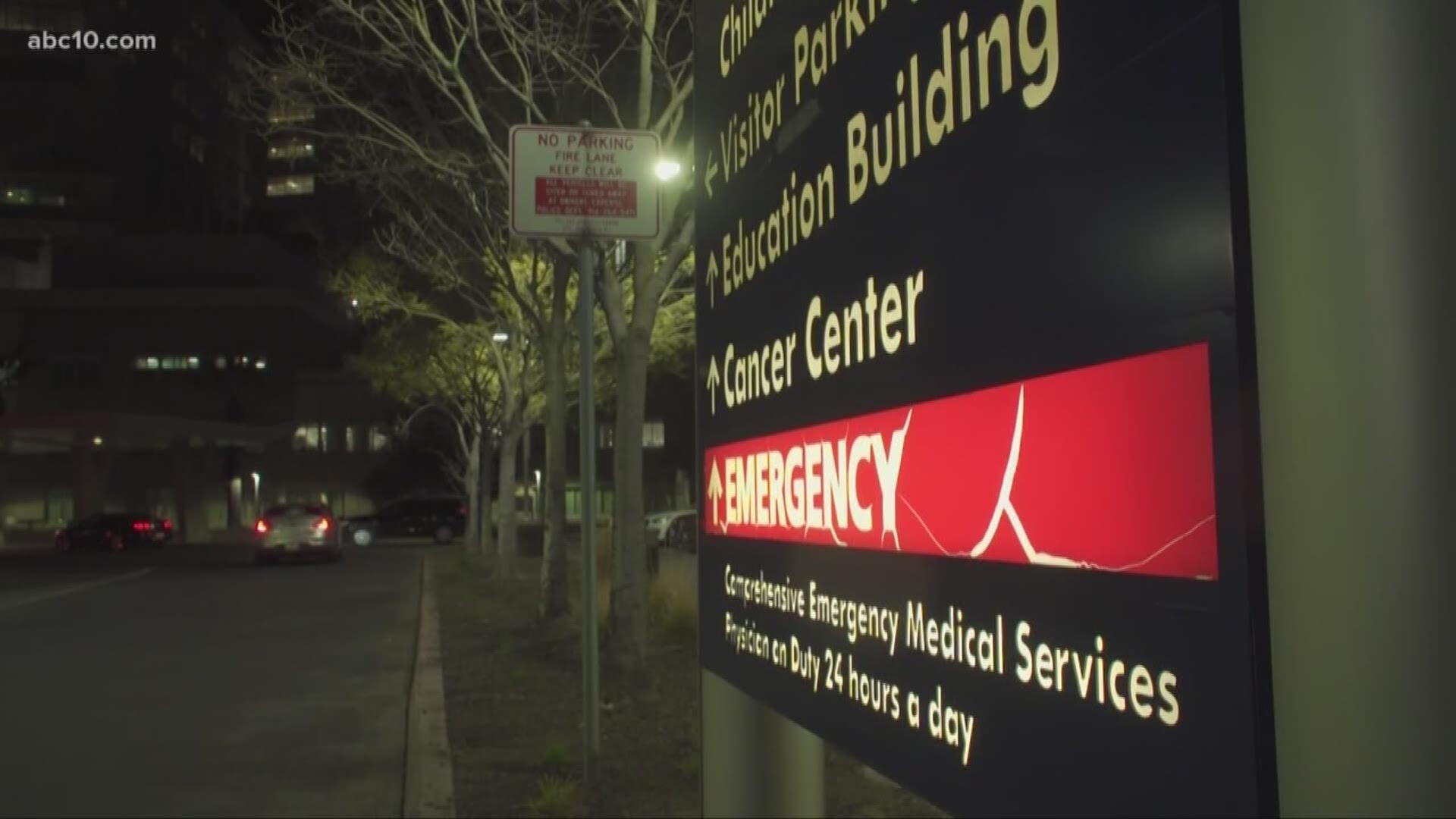SACRAMENTO, Calif — The entire goal of all the drastic changes being made to daily life is to keep the hospital system from being overwhelmed by a "surge" of coronavirus cases. Health experts warn people might die of the virus who could otherwise be saved.
Gov. Gavin Newsom said this week that California expects to need 50,000 more hospital beds than the state ordinarily has, which is why the state plans to make hospitals out of fairgrounds, hotels and army bases.
California is also asking hospitals to expand.
"Three thousand [beds are] going to come from an increase within our hospital system, a roughly 40 percent increase," Newsom said.
Here are three fundamentals to help you understand what the surge means for hospitals:
1: OUR HOSPITALS ARE NORMALLY FULL
"ERs are running at full capacity all the time," said Richard Carvolth, the chief executive physician for Dignity Health in Sacramento.
Most American hospitals typically operate around 95 percent capacity, multiple experts told us.
However, it's a fairly common practice for hospitals to have more beds in their facility than they are staffing and using every day.
By using all available parts of their facilities and expanding into outdoor tents, hospitals can expand the raw number of beds they have.
Space isn't the only factor. There are efforts to bring in more staff to run hospitals by calling back retired nurses and doctors and by letting medical students participate.
"When we're anticipating a surge, we have to use not only all our physical capacity," Carvolth said. "We also have to staff up to that."
2: NOT ALL HOSPITAL BEDS ARE EQUAL
Creating extra hospital beds in tents is useful for triage and light care, but the worst-off COVID-19 patients would ideally go to a hospital's intensive care unit.
Aggressive pneumonia has caused the sickest patients to be placed on breathing machines. Hospitals are digging around for their old ventilators, re-purposing some that are usually used outside of the ICU, and trying to buy or rent more.
In a surge of severe COVID-19 cases, the total number of hospital beds is less important than the number of ventilators and staff capable of running them.
Emergency room doctors fear they'll have to make decisions about who gets to breathe and who doesn't.
"If a patient needs a ventilator, they need a ventilator," Carvolth said.
3: HEALTH CARE WORKERS ARE AT GREATER RISK
The people studying the coronavirus behind the pandemic worry about viral "load," which simply means the amount of virus that gets into a person's system.
"The more virus you receive the more likely you are to get infected," said Amandine Gamble, a post-doctoral a researcher at UCLA.
Gamble was one of the authors of a study looking at how long the virus lives on surfaces. She says it appears that a bigger dose of the virus can also make you have a more severe case.
"We don't have proof yet, but there [is evidence] that severity might be linked to the amount [of virus] you receive," Gamble said. "That's why health workers are the people we should care more about, because they are receiving a huge amount of virus every day all day long."
The state is trying to obtain tens of millions of masks for medical workers fighting the virus on the front lines.
A doctor at UC Davis Medical Center, who asked not to be identified to protect his job, said he's been given one N95 mask-- the kind that can protect from the virus when it is blown into the air.
"Not sure where the next one is coming from," he said.
Follow the conversation on Facebook on Brandon Rittiman.
FOR THE LATEST CORONAVIRUS NEWS,
DOWNLOAD THE ABC10 APP:
►Stay In the Know! Sign up now for ABC10's Daily Blend Newsletter



